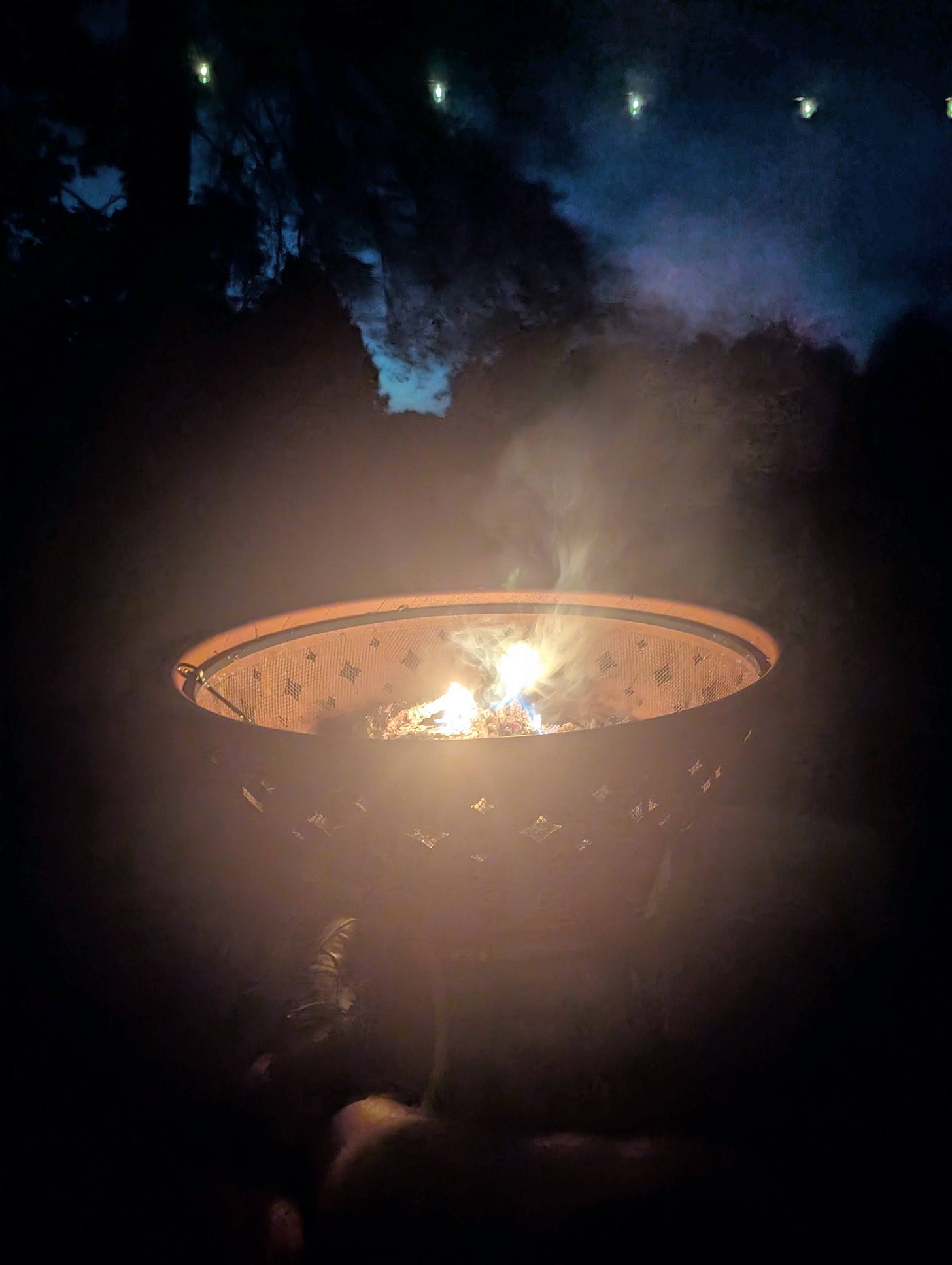The Field Hospital
Gettysburg and Galatians 6
My brothers and sisters, if anyone is detected in a transgression, you who have received the Spirit should restore such a one in a spirit of gentleness. Take care that you yourselves are not tempted. Bear one another’s burdens, and in this way you will fulfill the law of Christ. For if those who are nothing think they are something, they deceive themselves. All must test their own work; then that work, rather than their neighbor’s work, will become a cause for pride. For all must carry their own loads.
Those who are taught the word must share in all good things with their teacher.
Do not be deceived; God is not mocked, for you reap whatever you sow. If you sow to your own flesh, you will reap corruption from the flesh, but if you sow to the Spirit, you will reap eternal life from the Spirit. So let us not grow weary in doing what is right, for we will reap at harvest time, if we do not give up. So then, whenever we have an opportunity, let us work for the good of all and especially for those of the family of faith.
See what large letters I make when I am writing in my own hand! It is those who want to make a good showing in the flesh who try to compel you to be circumcised—only that they may not be persecuted for the cross of Christ. Even the circumcised do not themselves obey the law, but they want you to be circumcised so that they may boast about your flesh. May I never boast of anything except the cross of our Lord Jesus Christ, by which the world has been crucified to me and I to the world. For neither circumcision nor uncircumcision is anything, but a new creation is everything! As for those who will follow this rule—peace be upon them, and mercy, and upon the Israel of God.
From now on, let no one make trouble for me, for I carry the marks of Jesus branded on my body.
May the grace of our Lord Jesus Christ be with your spirit, brothers and sisters. Amen.
Galatians 6:1-18
It is a strange coincidence of history that the Battle of Gettysburg came only days before the 4th of July, 1863. From our vantage at this time in our country’s life, it seems appropriate that the deadliest battle in the Civil War ended the evening before America’s birthday, the Union being celebrated while the Confederacy was bloodily rejecting it. In our recent cultural hostilities, I know that some of our more liberal friends have ambivalent feelings about the 4th in recent years, and there is an irony in the shared historical company; the South didn’t care for American patriotism either.
I grew up in North Carolina with both Southern and Yankee family, ancestors who were on both sides of the conflict. My great-great-grandfather was a first-generation German immigrant and Lutheran minister who studied at Gettysburg Seminary shortly before the war. A few years ago, I was able to visit the Gettysburg Seminary library and see his handwriting preserved in one of his student essays, bringing the historical gap into perspective. It was not so long ago that we were fighting and dying over the right to enslave fellow human beings, in a Christian society over 1800 years into Christianity no less, the extreme opposite end of our Galatians 6 reading which calls us to bear each other’s burdens and not sow to the flesh, but the spirit. Instead, slavery was telling a people that you must bear my burdens while you sow not only to the fields, but to my flesh. And as we know, bringing it to an end did not suddenly end all American evils nor slaveries by other names.
But the Seminary holds an interesting place on history’s battlefield. As journalist David Wenner shared, “Gettysburg Seminary's founder, Samuel Schmucker, was an outspoken opponent of slavery in the years leading up to the Civil War, commonly doing so from the pulpit”; Lord willing, I would have been as bold, but I confess I don’t know that I would have. Adding that Schmucker had married a Virginia woman whose family owned slaves, Wenner continues, “During slavery years, people on both sides of the slavery argument used the Bible to justify their positions. The seminary had students from both the north and the south, and some argued pro-slavery views within its walls.”
As for our current cultural moment, perhaps the stakes feel as high to us, or perhaps that comparison is insulting. Perhaps we don’t really know how our current conflict maps onto the long hindsight view of history that is so clear now. In any case, there is certainly a growing rupture on a number of issues during a week we are supposed to be celebrating our unity in freedom. But perhaps because I know only a small bit of the history of Gettysburg Seminary, I know that even at the flashpoint of literally warring visions of what America should be, there were things that were timeless, wholesome, good, and true even in the midst of evil.
For during the battle, Gettysburg Seminary was turned into a field hospital for both sides, treating some 700, while far greater numbers of men lay face-down beyond treatment on the battlefield.1 The place meant to train ministers like my great-great-grandfather was temporarily a different kind of training ground, where unpaid and untrained local volunteers, many of whom were women, streamed in at the edges of the battlefield to try to salvage what life there was to salvage. The trained doctors who did show up did not have their normal supplies and could only do so much. While they could not stop the war or the bloodshed, I doubt there has been a better use or symbol of a seminary in the 162 years since.
It’s important to note that the Seminary did not enter into this role by choice. Becoming a hospital was less about any goodness of the Church than simply the fact that it was there, perhaps subconsciously aided by the fact that people knew what, and Who, that seminary was supposed to stand for. It has long been said (with no confirmable attribution) that the Church is “not a museum for saints, it is a hospital for sinners.” Some have further suggested that it is, too, a morgue for the dead, yet a strange one—people arrive dead in our flesh, and through the saving work of Christ leave alive.
Thinking of this with our Galatians 6 reading, I think about Paul’s lines about bearing each other’s burdens in such times, and how we can be a better field hospital for souls in our community. But I especially sit with verses seven through nine, beginning with a famous warning: “Do not be deceived; God is not mocked, for you reap whatever you sow. If you sow to your own flesh, you will reap corruption from the flesh, but if you sow to the Spirit, you will reap eternal life from the Spirit.”
If he starts with a warning, Paul moves toward hope: “So let us not grow weary in doing what is right, for we will reap at harvest-time, if we do not give up.”
I know that whatever our political feelings are, this time is a time for weariness. Yet let us take that warning and that hope together: what do we want to sow? If we don’t like what the government sows, what is it that we want to sow instead? Beyond the “anti-vision” that opposes the powerful, what is the vision of the wholesome, the true, the timeless good? What are the seeds of the Spirit that God hopes we might help him sow?
This is a challenge when, sometimes, our analysis and diagnosis of what is being sown and reaped by our enemies can be self-serving. Zooming in on the Galatians’ issue about the necessity of circumcision for salvation or not, I wonder what those conversations were like. For Jewish early Christians, circumcision was the sign of belonging to God and always had been. So I imagine some of the circumcised Christians in the Church of Galatia said, “Well, they clearly aren't dedicated enough, really, they’re not really Christians. Of course they'll go on sinning.” And on the other side, I’m sure they thought, “Well, those folks are just holier than thou. They’re not real Christians either.” The point is not moral equivalency—there was a right and a wrong answer on this circumcision issue, which Paul addresses, just as there was a clear right and wrong on slavery. The truth cannot be “in the middle” when the question comes to either circumcision or slavery.2 But also, there is a deeper underlying point for Paul: what are we sowing? And what do we want to reap? The things of the flesh, or the things of the Spirit? Do we want to sow for ourselves, or sow for each other? And if we don't like what we see going on in the world, and don’t want to reap it, what is it that we ought to be sowing in our community instead?
What are the seeds of the Spirit that we can throw from the windows of the field hospital for souls?
Perhaps you can throw the seeds of fairness, justice, good faith, truth, honesty, and integrity. When the soldier from the other army comes into your midst, even when you know they support something evil, can you fight for what is right while still treating them with dignity? If you see people acting with inhumanity toward their neighbor, can we sow not more seeds of the flesh through more inhumanity, but the seeds of the Spirit that Christ sows? Can we not lose our compass of what is right while also bearing the burdens and treating the wounds of our enemy?
As for Craftsbury, I think and I know we can. I have seen it in this community every week for two years. And so with great optimism and hope that I pray that the Church, if nothing else, can be a field hospital to care for all who are wounded in our physical, cultural, and spiritual battles today. And the good news is that we don’t have to be especially good, because we’re not; we’re getting treated in the hospital too. Like the seminary that became a hospital, we’re just here. And we can always let people know this is a soul’s hospital. And in God’s grace, this place can even be a morgue where those who have died to sin find a new life in Him.
If you are weary like the Galatians, let us keep hoping and let us keep sowing. We can’t control the world. We can’t control the weather in our field. But besides pushing back what we are against, we can keep sowing the Spirit we are for. For even where death and evil had seemed to rule, Christ sowed his entire being that we may reap life.
https://muse.jhu.edu/article/46360/summary
Arguably, though, the “truth in the middle” with circumcision was the early Christian belief that drew on the emphasis of “circumcision of the heart” in the Hebrew scriptures, and made baptism the new circumcision—a sign of belonging that all could participate in, regardless of culture and gender.







